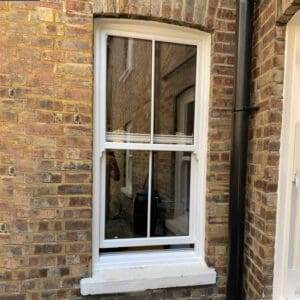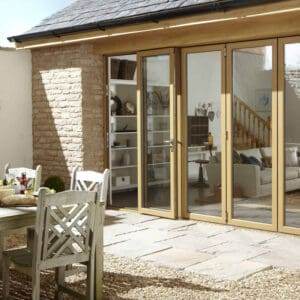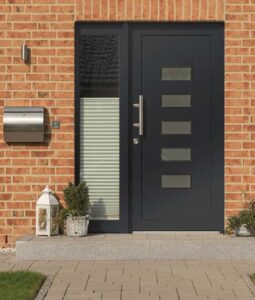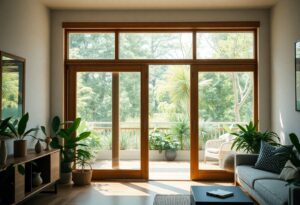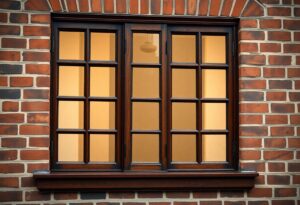There’s a strong connection between uninterrupted sleep and your overall well-being, yet external noise can disrupt your nightly rest. Noise reduction windows provide a vital solution by minimising external sounds that invade your sanctuary, allowing you to enjoy deeper and more restorative sleep. By creating a more peaceful environment, these windows not only enhance your sleep quality but also contribute to improved mood and productivity during the day. Investing in noise reduction windows can transform your home into a tranquil retreat, making a significant difference in your life.
The Science of Sleep
The science of sleep reveals that quality rest is crucial for overall wellbeing. Sleep is not just a passive state; it is a dynamic process involving various stages that contribute to your physical and mental health. Understanding the mechanisms of sleep can help you appreciate how different factors, such as noise, can impact your restorative time and your ability to function optimally during the day.
Understanding Sleep Stages
To fully grasp the importance of sleep, it is crucial to recognise the different stages involved. Sleep consists of two main types: non-REM (NREM) and REM (Rapid Eye Movement). NREM sleep includes stages 1 to 3, transitioning from light sleep to deep sleep, which is vital for physical recovery. REM sleep, where most dreaming occurs, plays a significant role in emotional regulation and memory consolidation. Disturbances during these stages can lead to diminished sleep quality, affecting your ability to recharge and maintain optimal mental performance.
The Role of Ambient Noise
Across your night’s rest, ambient noise can significantly disrupt your sleep patterns, triggering physiological responses that elevate stress levels. Studies have shown that noise pollution correlates with sleep disorders, leading to various health issues such as anxiety and cardiovascular problems. Even seemingly minor disturbances can prevent you from reaching deeper sleep stages, thus compromising your overall health and wellbeing. (Addressing noise issues in your sleeping environment should be a priority.)
This impact of ambient noise on sleep can lead to a cascade of negative consequences for your health. You may find it challenging to fall asleep or stay asleep due to constant disruptions, preventing you from achieving the restorative rest your body craves. Long-term exposure to disruptive noise can increase your risk of developing chronic conditions, making a noise-free environment crucial for healthy living. (Investing in noise reduction solutions is a decision you should consider for your sleep quality.)
Noise Pollution and Its Effects
There’s a significant impact of noise pollution on your overall well-being. Constant exposure to disturbances can lead to heightened stress levels and diminish your quality of sleep. For insights on choosing suitable sound-reducing solutions, check out Windows for a better night’s rest.
Sources of Noise Pollution
Beside traffic and construction, everyday sounds like loud music, barking dogs, and bustling crowds contribute to noise pollution in urban and suburban areas. These disturbances are often prevalent, affecting residents’ tranquillity and overall quality of life. (Taking action to mitigate these issues can significantly enhance your comfort.)
Health Consequences of Noise Pollution
Around 1 in 5 people suffer from health problems linked to noise pollution, including stress, anxiety, cardiovascular issues, and long-term sleep deprivation. Persistent noise can lead to serious health complications, making it necessary to address these concerns.
Noise can disrupt your peace and pose serious health risks. Studies show that long-term exposure to noise pollution can increase your chances of developing cardiovascular disease by over 25%. Furthermore, it can lead to anxiety and depression, which are increasingly prevalent in noisy environments. Prioritising a quiet atmosphere is imperative for maintaining your physical and mental health.

How Noise Reduction Windows Work
Some homeowners find that traditional windows do little to block external noise. Noise reduction windows are designed with advanced technologies to diminish sound transmission. By utilising materials and designs like double-glazing or triple-glazing, these windows provide significant soundproofing benefits, allowing you to enjoy a peaceful environment conducive to quality sleep.
The Technology Behind Noise Reduction Windows
Windows comprising double-glazed or triple-glazed units utilise layers of glass separated by gas-filled spaces to create a barrier against sound. The materials, usually low-emissivity glass combined with robust frames, enhance sound insulation. The technology involved includes acoustic interlayers that can dampen vibrations, providing a quieter indoor experience. (When choosing noise reduction windows, consider the specific noise pollution in your area).
Benefits of Installing Noise Reduction Windows
Along with enhancing your comfort, noise reduction windows offer multiple advantages. Improved sleep quality is a significant benefit, as they effectively reduce disturbing sounds. Additionally, you may experience decreased energy costs due to better insulation, while your property’s value can increase, making it a worthy investment. Many users have reported significant reductions in noise and better overall satisfaction with their living spaces.
Due to the significant noise reduction these windows provide, individuals often find it easier to fall asleep and stay asleep throughout the night. As a result, you might feel more rested and energetic during the day. With lower energy costs from enhanced insulation methods, noise reduction windows can lead to long-term savings. Users frequently highlight not only the tranquility but also the boost in property value that comes with installing such windows, making them a sound choice for any homeowner.
Environmental Impact of Noise Reduction Windows
Not only do noise reduction windows enhance your sleep quality, but they also significantly contribute to a healthier environment. By reducing external noise, these windows encourage a tranquil atmosphere that can lead to lower stress levels for inhabitants, ultimately promoting better mental health. Such installations can also deter urban sprawl by making city life more pleasant, encouraging sustainable growth.
Energy Efficiency and Sustainability
Across homes, noise reduction windows markedly increase energy efficiency by providing better insulation, which helps maintain your desired indoor temperature. This efficiency leads to reductions in heating and cooling costs, ultimately resulting in a decreased carbon footprint. Additionally, many manufacturers now utilise sustainable materials in window production, maximising durability while also benefiting the planet. (Choosing these windows is an investment in both your home and the environment.)
Urban Planning and Noise Reduction
With effective urban planning, cities can implement building regulations that mandate noise reduction measures, such as installing quality soundproof windows. Various cities have successfully reduced noise pollution through such initiatives; for example, Berlin’s noise abatement policy led to improved resident satisfaction and health outcomes. (Advocating for such regulations is vital to promoting a quieter, healthier urban environment.)
Even as urban centres expand, prioritising noise reduction in building policies is imperative for enhancing overall quality of life. Cities that invest in soundproofing measures not only create peaceful living conditions but also engage in forward-thinking urban design that accommodates future growth. Implementing these strategies ensures your community flourishes while addressing the growing concern of noise pollution. (Taking action now will determine the sustainability of our urban environments for generations to come.)
Choosing the Right Noise Reduction Windows
Many homeowners underestimate the impact of noise reduction windows on their sleep quality. When deciding on the right ones for your home, consider factors like material quality, the reputation of the installation service, and the sound transmission class (STC) ratings of the windows. These elements will significantly influence the effectiveness of noise reduction. (Prioritising high STC ratings will enhance your results.)
Factors to Consider
You should evaluate the following key factors when selecting noise reduction windows:
- Material quality – Ensure the windows are made from durable materials that effectively block noise.
- Installation service – Select a reputable installation service to guarantee proper fitting.
- Sound transmission class (STC) ratings – Higher STC ratings indicate better sound insulation. (Pay attention to these ratings to maximise noise reduction.)
Thou should invest time in assessing these aspects to achieve the best noise reduction for a peaceful sleep environment.
Cost-Benefit Analysis
Across the long-term, investing in noise reduction windows can lead to significant health benefits and savings. While the upfront costs may seem high, consider the potential reduction in energy bills and the improvement in your sleep quality, contributing to overall well-being. (Weighing these costs against the benefits is vital for making an informed decision.)
Factors affecting your cost-benefit analysis include installation costs, potential increases in property value, and decreased stress levels due to improved sleep. By fact-checking the noise reduction qualities and their energy-efficient properties, you find that long-term savings often outweigh initial investments. Thus, prioritising noise reduction can lead to a notable upgrade in your living environment.
Conclusion
Upon reflecting on how noise reduction windows improve sleep quality, you may realise that enhancing your sleeping environment is crucial for restful nights. These windows effectively minimise external noise, creating a tranquil space where you can unwind and rejuvenate. With less disruption from the outside world, you are more likely to experience deeper sleep cycles, leading to better overall health. To explore further insights, check out the Benefits of Soundproof Windows and Doors for Noise ….
FAQ
Q: How do noise reduction windows work?
A: Noise reduction windows typically feature double or triple glazing, where multiple panes of glass are separated by spaces filled with argon gas or vacuum. This design reduces sound transmission between the outside and inside, significantly lowering noise levels that can disturb your sleep.
Q: Can noise reduction windows help with external noise, such as traffic or construction?
A: Yes, noise reduction windows are effective at minimising external sounds such as traffic, construction noise, and other environmental disturbances. The advanced materials and construction techniques help block a significant amount of sound, resulting in a quieter indoor environment conducive to better sleep.
Q: Will installing noise reduction windows always eliminate noise?
A: While noise reduction windows can significantly decrease noise levels, they may not completely eliminate all sound. The level of noise reduction achieved will depend on various factors, including the type of window, the level of soundproofing, and the intensity of the external noise sources.
Q: How can noise reduction windows benefit my sleep quality?
A: By creating a quieter indoor atmosphere, noise reduction windows can help individuals fall asleep faster and stay asleep longer. Reduced noise interruption leads to a more restful sleep, helping improve overall sleep quality and well-being.
Q: Are there additional benefits of installing noise reduction windows?
A: Apart from improved sleep quality, noise reduction windows also offer benefits such as enhanced energy efficiency, increased property value, and better indoor comfort. They can also help maintain a calmer home environment by mitigating sound pollution.
Q: Does the installation of noise reduction windows require special considerations?
A: Yes, it is advisable to have a professional assess your property before installation. This assessment can help ensure that the chosen windows are suitable for your specific needs and that they are installed properly to maximise their noise reduction capabilities.
Q: How do I maintain noise reduction windows for optimal performance?
A: Maintaining noise reduction windows mainly involves regular cleaning of the glass and ensuring seals are intact. It’s also wise to check for any signs of wear or damage to the frames and seals, as these can compromise their soundproofing performance.

